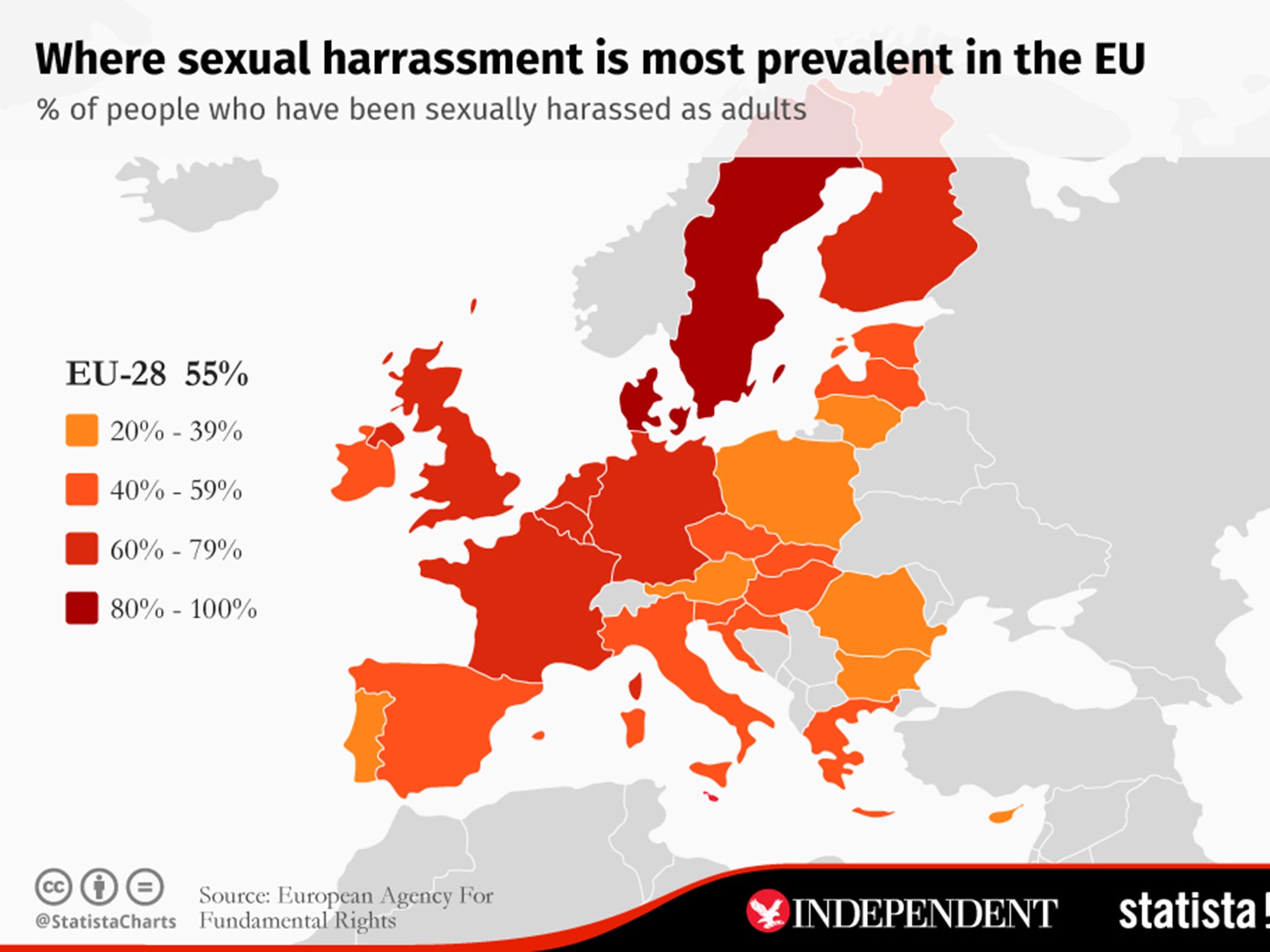Sweden and Denmark have highest rates of sexual harassment in Europe
The finding was made by the European Agency for Fundamental Rights

Your support helps us to tell the story
From reproductive rights to climate change to Big Tech, The Independent is on the ground when the story is developing. Whether it's investigating the financials of Elon Musk's pro-Trump PAC or producing our latest documentary, 'The A Word', which shines a light on the American women fighting for reproductive rights, we know how important it is to parse out the facts from the messaging.
At such a critical moment in US history, we need reporters on the ground. Your donation allows us to keep sending journalists to speak to both sides of the story.
The Independent is trusted by Americans across the entire political spectrum. And unlike many other quality news outlets, we choose not to lock Americans out of our reporting and analysis with paywalls. We believe quality journalism should be available to everyone, paid for by those who can afford it.
Your support makes all the difference.Sweden and Denmark are the countries with the highest rates of sexual harassment in the EU.
A chart compiled by Statista for The Independent shows the percentage of people who said they experienced sexual harassment as adults in the EU’s member states.
The results are based on data from 2012, published by the European Agency for Fundamental Rights, in its 2014 report, Violence against women: an EU-wide survey.
The data shows that in Sweden and Denmark, 80 to 100 per cent of people said they were sexually harassed as adults – the highest anywhere in the continent.
In the UK, France, Germany, and Finland, 60 to 79 per cent of people said they were sexually harassed.
A report on the data states: “The observed variations between EU member states in the prevalence rates of sexual harassment can be explained by a number of factors looked at in combination.
“For example, the different level of acknowledgement of sexual harassment in national legislation and its prioritisation in specific policies and political debates might be reflected in women’s overall level of awareness of sexual harassment as a fundamental rights abuse, and their disclosure of such experiences.”
Last year, the Gatestone Institute named Sweden the “rape capital of the west”, based on data collected in 2010, which put it only behind Lesotho in southern Africa in terms of occurrence of rape.
According to the Institute, the fact that “in 1975 the Swedish parliament unanimously decided to change the former homogenous Sweden into a multicultural county” was of relevance when discussing why the number of rapes had increased.
It said: “Over the past 10 to 15 years, immigrants have mainly come [into Sweden] from Muslim countries such as Iraq, Syria and Somalia. Might this influx explain Sweden’s rape explosion?
“It is difficult to give a precise answer, because Swedish law forbids registration based on people’s ancestry or religion.
“One possible explanation is that, on average, people from the Middle East have a vastly different view of women and sex than Scandinavians have.
“And despite the attempts by the Swedish establishment to convince that everyone setting foot on Swedish soil becomes exactly like those who have lived here for dozens of generations, facts point in an altogether different direction.”
Join our commenting forum
Join thought-provoking conversations, follow other Independent readers and see their replies
Comments